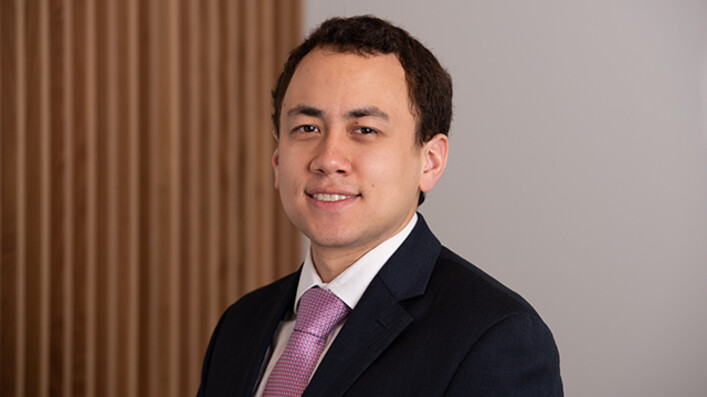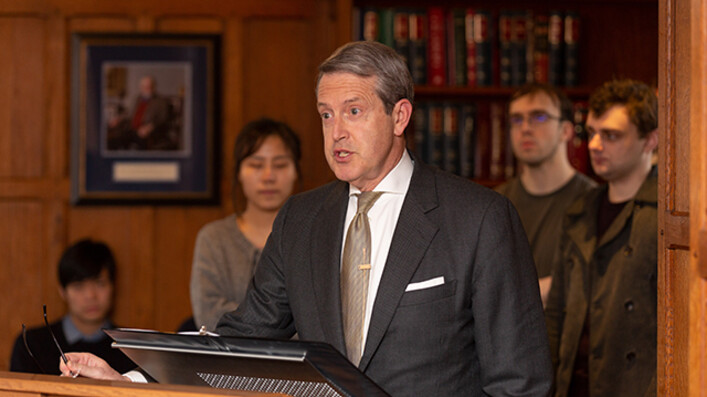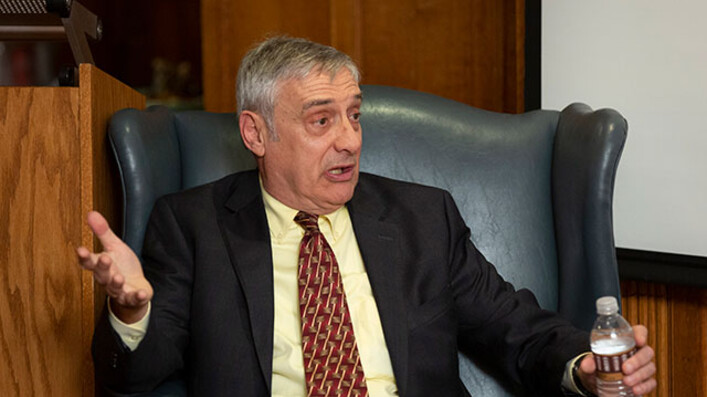Thomas Kadri, Ph.D. candidate
I decided to pursue a PhD here mainly because of the realities of the law teaching market. So it's very competitive to get a job as a law professor. The market is extremely tight. And so I felt that Yale would provide me with great resources, both the excellent faculty here and then also just the time to write. So really kind of make or break is the paper that you write when you go on the law teaching market. And having three years to be able to concentrate on my scholarship was something that really appealed to me.
The community of PhD students is small. Our cohorts tend to be pretty small. But it's really collegial. We read each other's work often. We will hold formal and informal workshops where we're reading drafts and discussing early stage ideas. And I'm actually on an email chain, an accountability group with a few of the PhD students where once a week, we'll shoot around an email and let each other know what we've done that week and what we hope to do the following week, just a nice way to keep in touch with what people are doing and then also to keep yourself on track with your writing goals.
So my dissertation is about the tensions between tort liability and free speech. So specifically right now, I'm working on the right of publicity, which is a state law tort that recognizes a property-like interest to prevent other people from using your name or your image against your will. And the paper I'm currently writing is actually about Donald Trump and specifically Trump's attempts to prevent people from using his name and image without his permission, what that can teach us about the limits of the right of publicity and what free speech has to say about it.
So before I was in the PhD program, I clerked for two years, first in New York on the Federal District Court and then out in California on the Court of Appeals for the Ninth Circuit. So especially on the Court of Appeals, that was a place where I felt like I was able to develop some of the research and analytical skills that have come very in handy as I've been doing my research here for the dissertation. And so my scholarship tends to focus quite a lot on what it is that courts are actually doing, not just the reasons they say that they're deciding things in certain ways but what's actually going on behind the scenes. And so this very doctrine-focused way of approaching scholarship, I think my experience working for two judges was really helpful in that regard.
A student perspective on the Ph.D. in Law program and his research on tort liability.


